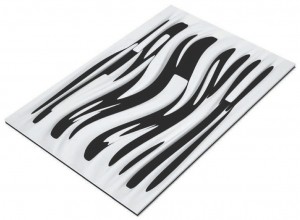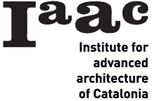 ASSIGNMENT 2
ASSIGNMENT 2
DESCRIPTION
This project was developed to explore the CNC milling processes through different digital designs, materials and tools. The materials selected were the Valchromat (595 x 395 x 24mm) and the Polyurethane. For this exercise, we study the design possibilities between Rhino and Rhino CAM in order to calibrate them with the milling machine.
Specific parameters were given for the design of the pieces. First, for the Valchromat it was required to explore shapes that show the three layers within the board. On the other hand for the Polyurethane, it was requested to keep a curved base shape and explore geometries on the surface.
The concept used for the Valchromat, was to create soft curves that allows the interaction between the layers of the board. In the case of the Polyurethane, the surface was worked with gentle shape in order to respect the characteristics of the material. The simulation process with Rhino CAM gave us the idea of tool path effect on the final pieces; so many shapes were explored to change the design and tool sizes.
The final shape for the Valchromat took 1 hour. But, this result could be more efficient if the tool size gets increased. Also, a big size to the tool path creates a softer finish on the piece, considering the features of the material. However; as the Polyurethane milling is on hold, the final review and comments for the design will be developed after the conclusion of the exercise.
See the full process document here.
